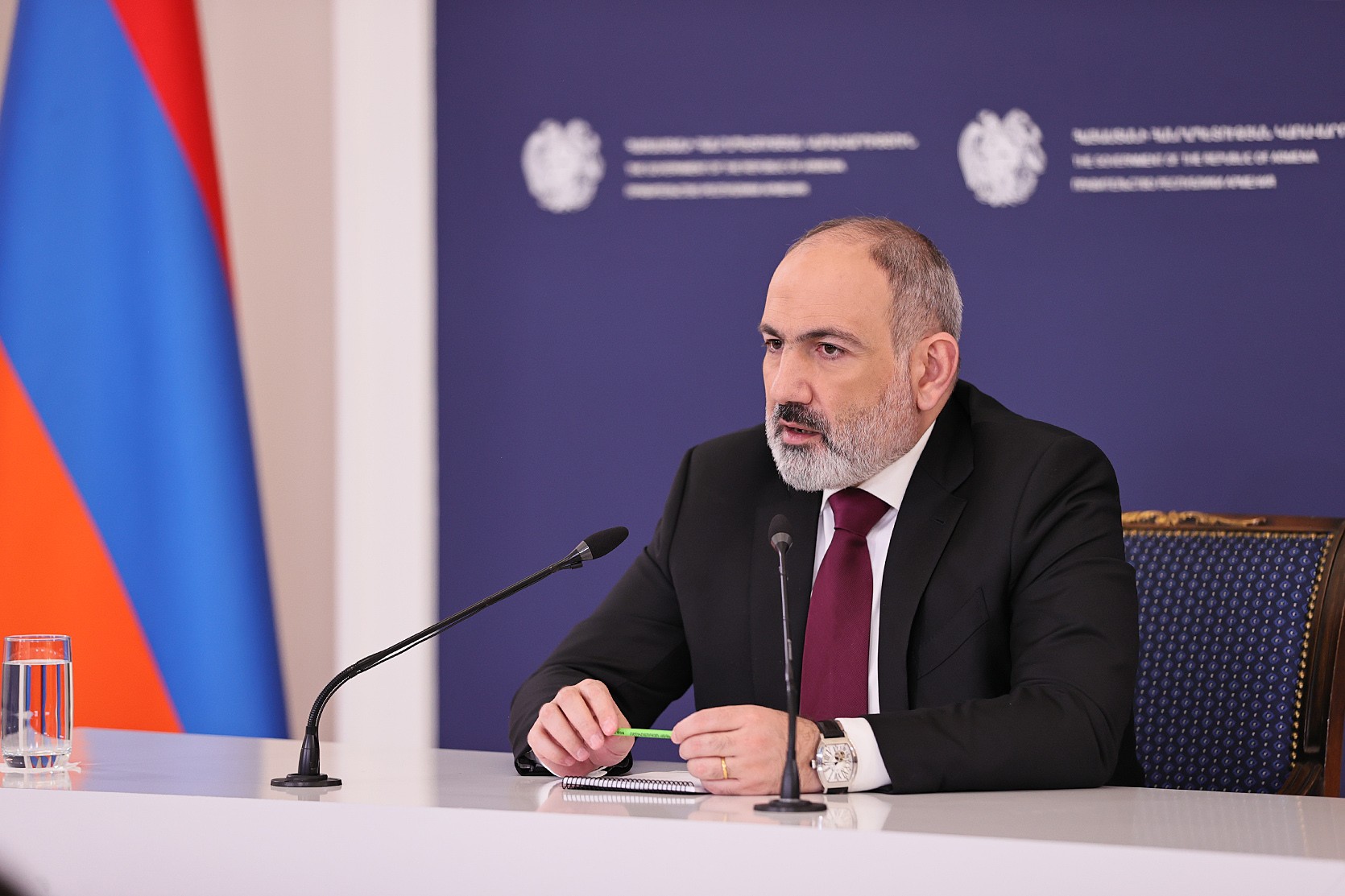
Armenian Prime Minister Nikol Pashinyan has warned Azerbaijan could be stalling peace talks in order to launch a ‘full-scale war’, a claim Azerbaijan has dismissed as ‘unfounded’.
While opening a government session on Thursday, Pashinyan referred to the escalation along the Armenia-Azerbaijan border earlier this week, labelling it ‘another manifestation of Azerbaijan’s unconstructive policy’.
He said Azerbaijan could be avoiding measures to stabilise the situation on the border to begin military operations ‘with the prospect of turning the military escalation into a full-scale war against the Republic of Armenia.’
‘This intention can be noticed in all statements and actions from official Baku,’ said Pashinyan.
Earlier this week, four Armenian soldiers were killed when Azerbaijan attacked an Armenian position on the border, after an Azerbaijani soldier was reportedly wounded by Armenian border guards. The attack came despite the Armenian Military Police initiating an investigation into their own soldiers.
On Friday, Azerbaijan claimed their units had again come under fire, a claim refuted by Armenia’s Defence Ministry.
During his speech, Pashinyan said that he had the impression Azerbaijan lacked interest in maintaining border stability, and was pursuing a policy of ‘give me what I want through negotiation, otherwise I will take it with war.’
He said Armenian suggestions, including demarcating the border one section at a time, had been rejected by Baku.
Pashinyan also said on Friday that it was their policy to ‘do everything possible to prevent such developments’ by engaging in active negotiations.
Referring to statements from Azerbaijani officials, including President Ilham Aliyev, regarding the need for changes in Armenian legislation, Pashinyan said it was ‘a violation of our country’s sovereignty and interference in our country’s internal affairs.’
During his inauguration speech Aliyev said that ‘if territorial claims against us are not abandoned, if Armenia does not bring its legislation into order, of course, there will be no peace treaty.’
‘Attempts to interpret that there is any provision preventing the signing of the peace treaty in the legislation of the Republic of Armenia have nothing to do with reality’, said Pashinyan.
He added that Armenia recognised the territorial integrity of all its neighbours and had no goals outside its territory, which he said was their long-term strategy.
The Azerbaijani Foreign Ministry issued a statement dismissing Pashinyan’s ‘unfounded allegations,’ which they said were ‘intended to deliberately inflame tension in the region.’
Following this week’s violence, the Chief of the CSTO Joint Staff, Colonel General Andrei Serdyukov, stated that the alliance saw ‘high potential for conflict’ on the Armenian-Azerbaijani border and that a peace treaty was required to normalise the situation. Serdyukov also accused ‘individual states’ of attempting to strengthen their positions in the South Caucasus, an apparent reference to Armenia’s growing ties to Western countries.









